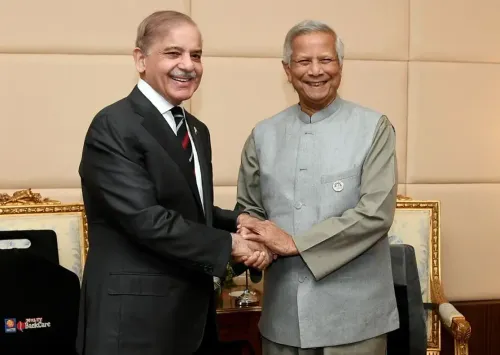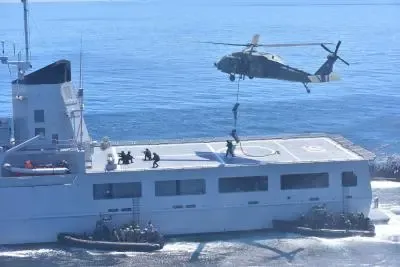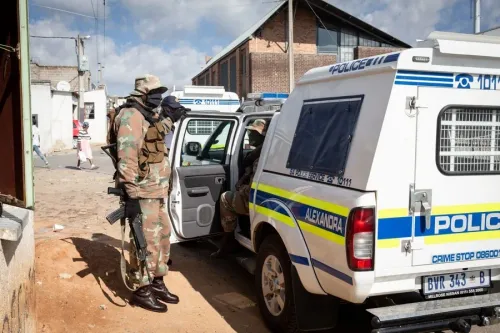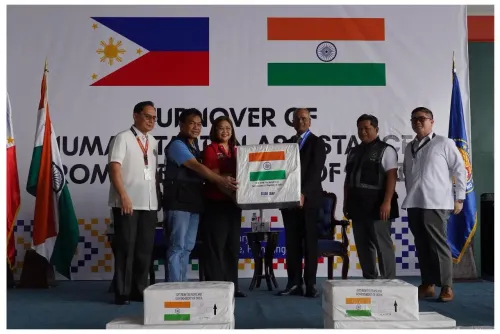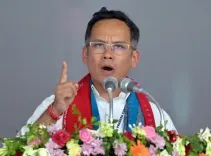Is the Two-State Solution to the Palestinian Issue Approaching a Point of No Return?
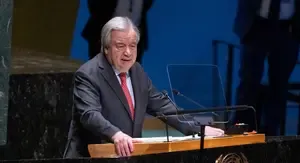
Synopsis
Key Takeaways
- Urgent need for action to preserve the two-State solution.
- Escalating violence poses a significant threat to peace.
- Humanitarian aid must be delivered without restrictions.
- International community has a responsibility to uphold peace.
- Upcoming conference is critical for international support.
United Nations, April 30 (NationPress) UN Secretary-General Antonio Guterres cautioned that the two-State solution concerning the Palestinian issue is approaching a critical point of no return.
In his remarks during the UN Security Council's open discussion on the Middle East situation, including the Palestinian dilemma, Guterres stated on Tuesday that the region is experiencing profound changes, characterized by both violence and volatility as well as opportunities and potential. He emphasized that genuine sustainable peace in the Middle East relies on one fundamental question: the establishment of a two-State solution, where Israel and Palestine coexist peacefully and securely, with Jerusalem serving as the capital for both nations.
However, he warned that the prospects for a two-State solution are now in jeopardy of diminishing to the point of vanishing, with the political commitment to this longstanding objective being further away than ever before.
Guterres highlighted that since the October 7, 2023 terrorist attacks by Hamas, the situation has deteriorated on all fronts—the ongoing conflict and devastation in Gaza, Israeli military operations in the occupied West Bank, including East Jerusalem, and the alarming levels of settler violence in an environment of impunity, as reported by the Xinhua News Agency.
"The world cannot afford to witness the disappearance of the two-State solution," Guterres insisted, emphasizing that political leaders must make decisive choices—whether to remain silent, to acquiesce, or to take action.
Expressing concern over statements from Israeli officials regarding the use of humanitarian aid as a military leverage tool, the UN chief stressed the necessity for unhindered humanitarian assistance, particularly through the crucial efforts of UNRWA.
He called for the immediate and unconditional release of all hostages and a permanent ceasefire.
Guterres urged UN member states to leverage their influence to ensure adherence to international law and to prevent impunity. He implored all parties involved in the conflict to fulfill their obligations under international law, including international human rights and humanitarian laws.
As the occupying power, Israel has a duty to provide food and medical supplies to the population. It must also facilitate relief efforts in the Occupied Palestinian Territory, and ensure that humanitarian, medical, and UN personnel are respected and safeguarded.
He underscored the international community's responsibility to avert ongoing occupation and violence, urging member states to take irreversible steps towards the implementation of a two-State solution.
The upcoming High-Level Conference in June, co-chaired by France and the Kingdom of Saudi Arabia, presents a vital opportunity to rejuvenate international support. Guterres encouraged member states to think beyond mere affirmations and consider innovative, concrete actions to back a viable two-State solution before it is too late, and called for enhanced and sustained political and financial support for the Palestinian Authority.
"Exhibit the political courage and demonstrate the political will to address this central issue of peace for Palestinians, Israelis, the region, and for humanity," the UN chief concluded.


